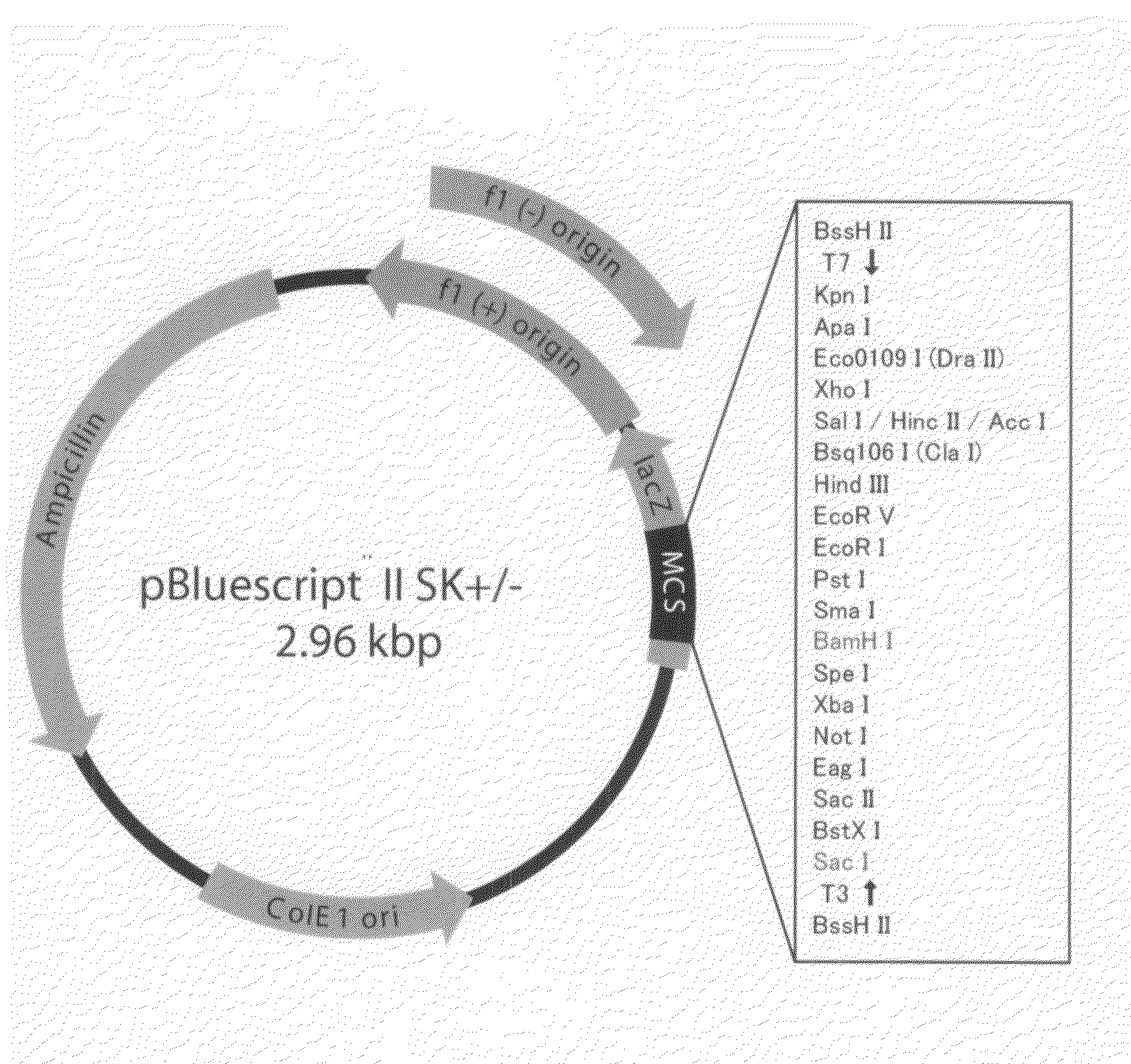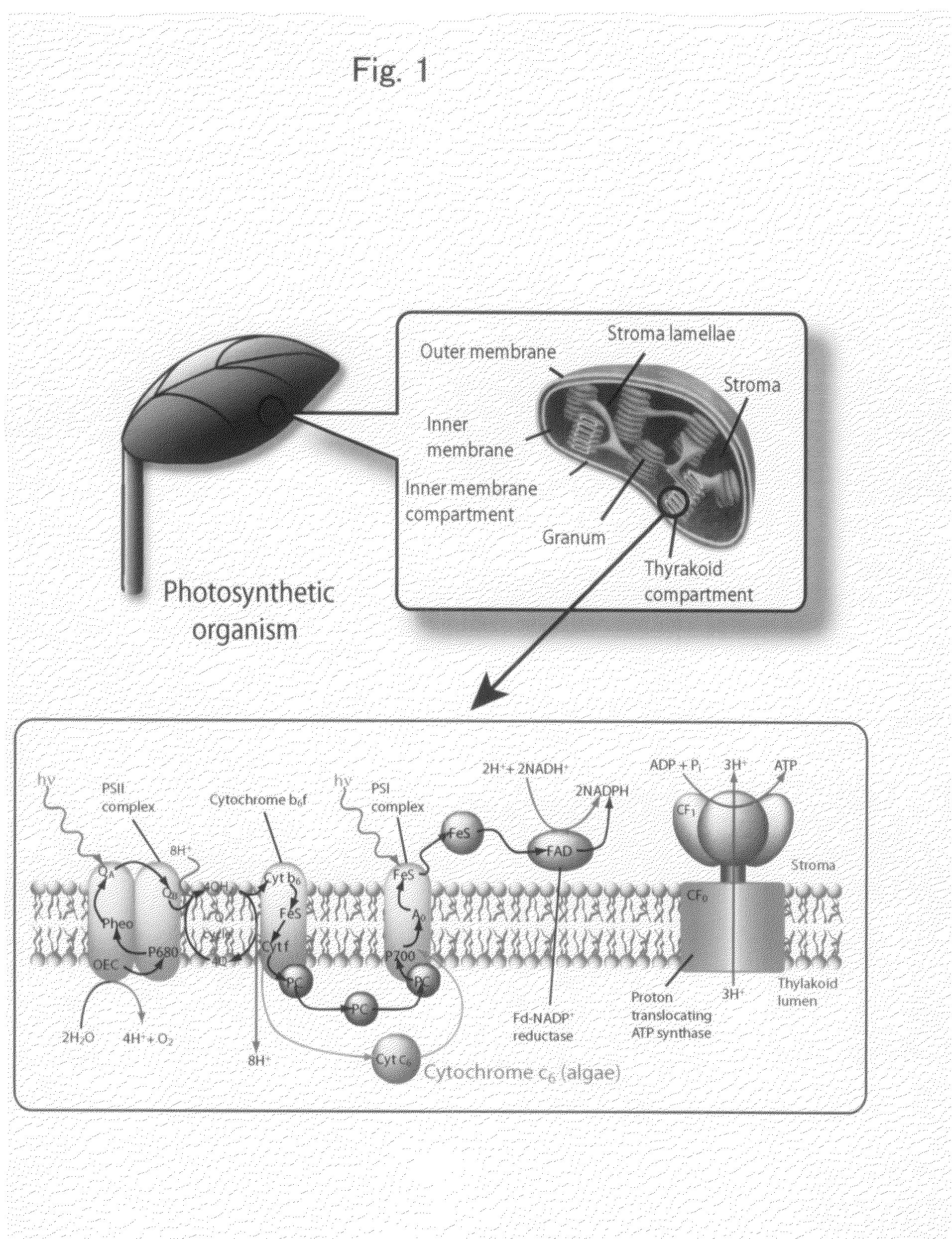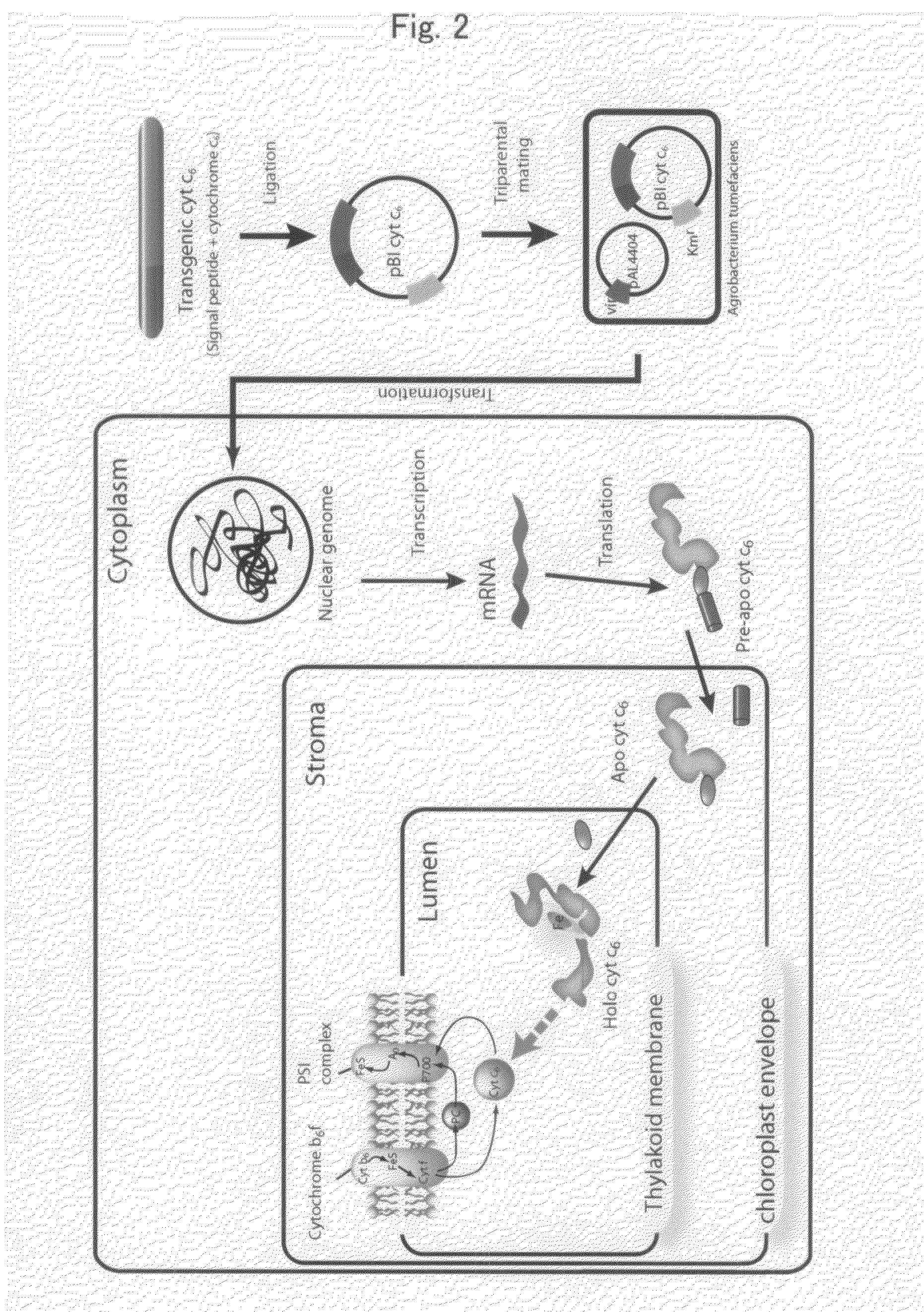Method of Constructing Novel Higher Plant and Method of Promoting the Growth of Higher Plant
- Summary
- Abstract
- Description
- Claims
- Application Information
AI Technical Summary
Benefits of technology
Problems solved by technology
Method used
Image
Examples
example 1
Construction of Cytochrome c6 Gene to be Introduced and Expression Vector Used for Plants
[0112](1) Preparation of Porphyra yezoensis-Derived Cytochrome c6 Mature Protein Region Gene
[0113]In the present example, a P. yezoensis-derived cytochrome c6 gene was acquired by cloning, and it was then ligated to a vector, so as to prepare a plasmid. Using this plasmid as a template, a P. yezoensis-derived cytochrome c6 mature protein region gene that was DNA of interest in this example was amplified. Thereafter, electrophoresis was carried out. A gene of interest was extracted by gel extraction, and it was then digested with restriction enzymes (SacI and PstI), so as to prepare a gene.
[0114]The reaction solution with the following composition was prepared in a 0.5-ml assist PCR tube.
Template (plasmid DNA (overall 1.0 μllength of cytochrome c6))Primer (1) (10 pmol / μl) 1.0 μlPrimer (2) (10 pmol / μl) 1.0 μl10 x Ex Taq buffer (Mg2+ plus) 2.5 μl(Mg2+ concentration: 20 mM)dNTP Mixture (2.5 mM each)...
example 2
Production of Transgenic Plant (Cytochrome c6-Introduced Arabidopsis thaliana)
[0156](1) Preparation of Agrobacterium tumefaciens Used in Plant Infection
(1-1) Preparation of Cytochrome c6 Expression Vector (pBI cyt c6)-Introduced Escherichia coli
[0157]In the present example, Escherichia coli HB101 used as a host was transformed with a plant expression vector (pBI cyt c6), into which a cytochrome c6 gene to be introduced into plants had been inserted. Thereafter, several colonies were selected, and they were then cultured in 3 ml of LB-Kanamycin liquid medium. A plasmid was prepared by the alkaline SDS method, so as to confirm construction of the vector and the presence or absence of transformation of the host Escherichia coli HB101.
[0158]Escherichia coli was transformed as follows. First, 150 μl of competent cells (HB101) were melted on ice to a certain extent, and 4 μl of the ligated reaction solution was then gently added thereto. The mixture was softly stirred with the tip of a c...
example 3
Analysis of Introduction of Cytochrome c6 Gene into Transgenic Plant Body and Expression Thereof
[0192](1) Analysis of Gene Introduced into Genomic DNA by PCR Method
[0193]In the present example, genomic DNA was extracted from transgenic Arabidopsis thaliana. Using the genomic DNA as a template, PCR was carried out. Introduction of a gene into the plant body was confirmed based on the presence or absence of amplification of the introduced gene.
(1-1) Extraction of Genomic DNA from Transformant
[0194]Approximately 2 or 3 leaves of transgenic Arabidopsis thaliana were placed in a mortar that had previously been cooled, and liquid nitrogen was rapidly added thereto. Thereafter, the plant body was homogenized until it became a powder state. Thereafter, the powder sample was placed in a 1.5 ml microcentrifuge tube, followed by weighing. 1 ml of a solution obtained by adding 2-mercaptoethanol to Wash buffer to a final concentration of 0.5% was added to the weighed sample, and the mixture was ...
PUM
| Property | Measurement | Unit |
|---|---|---|
| Volume | aaaaa | aaaaa |
| Volume | aaaaa | aaaaa |
| Volume | aaaaa | aaaaa |
Abstract
Description
Claims
Application Information
 Login to View More
Login to View More - R&D
- Intellectual Property
- Life Sciences
- Materials
- Tech Scout
- Unparalleled Data Quality
- Higher Quality Content
- 60% Fewer Hallucinations
Browse by: Latest US Patents, China's latest patents, Technical Efficacy Thesaurus, Application Domain, Technology Topic, Popular Technical Reports.
© 2025 PatSnap. All rights reserved.Legal|Privacy policy|Modern Slavery Act Transparency Statement|Sitemap|About US| Contact US: help@patsnap.com



